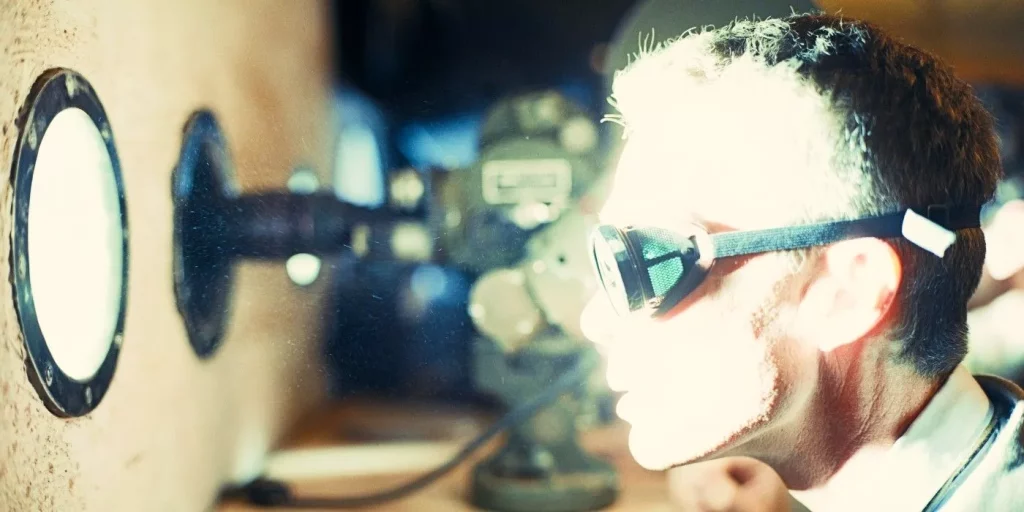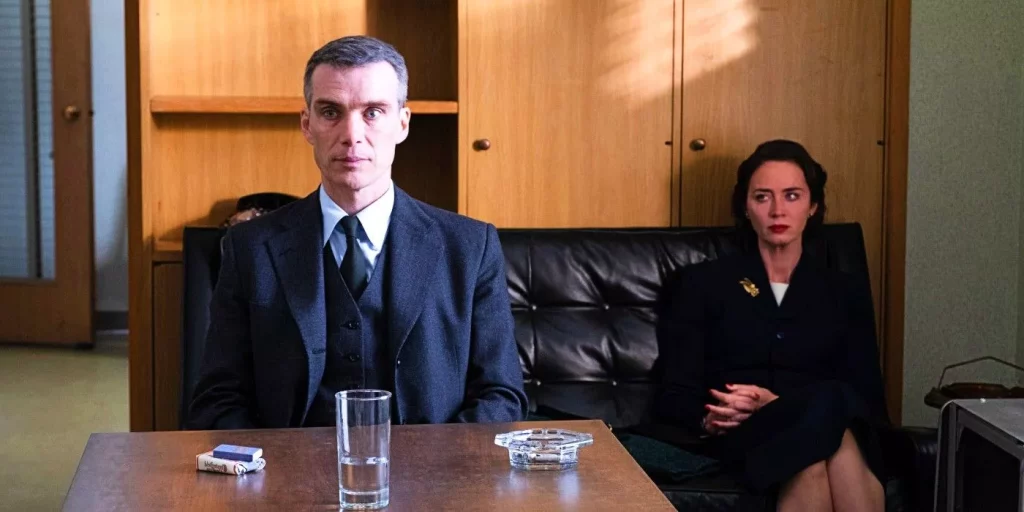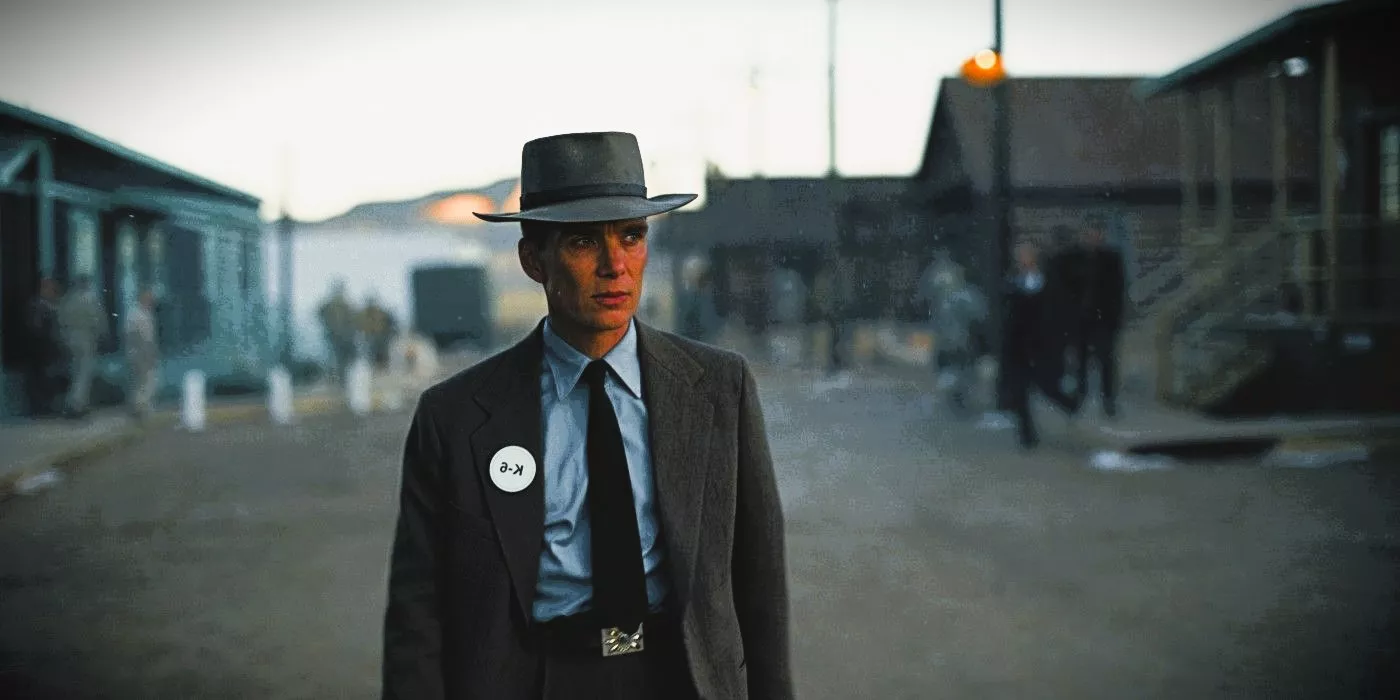Christopher Nolan’s latest film, “Oppenheimer,” offers a unique cinematic experience, much like his other works, with a puzzle-like narrative that unfolds before the audience. Unlike his previous films, the central enigma here is not the movie itself, but rather the complex character at its core, J. Robert Oppenheimer, the Father of the Atomic Bomb. Cillian Murphy delivers an outstanding performance, fearlessly delving into Oppenheimer’s torn psyche as he grapples with the consequences of his creation. Through this portrayal, we embark on a journey of discovery alongside the character, witnessing how he copes with the immense impact of his work on the world.
Based on Kai Bird and Martin J. Sherwin’s book, “American Prometheus,” Nolan masterfully adapts the script to employ a first-person perspective, heightening the film’s subjective nature. This approach immerses us so deeply into Oppenheimer’s mind that the transitions between color (representing Oppenheimer’s viewpoint) and black and white (depicting the world through Robert Downey Jr.’s character, Lewis Strauss) can be initially jarring. Downey Jr.’s portrayal of Strauss is so compelling that he manages to steal scenes from the talented ensemble cast surrounding Oppenheimer, including Emily Blunt, Florence Pugh, Matt Damon, Josh Hartnett, Rami Malek, Casey Affleck, Benny Safdie, and Alden Ehrenreich, who bring depth to the world Nolan crafts.
Through cleverly interwoven timelines, Nolan paints a thought-provoking character study that sheds light on Oppenheimer’s life from multiple angles, all at a breathless pace. The film doesn’t relent until it finally reveals the devastating aftermath of Oppenheimer’s actions and the lingering fears he carries for the future.
“Oppenheimer” is a captivating exploration of man’s hubris in the face of profound change, punctuated by some of the most haunting and startling imagery in Nolan’s illustrious career.

Oppenheimer mirrors its central figure’s persona, boldly charging forward at a relentless pace, unconcerned about whether the audience can keep up. Cillian Murphy masterfully captures Oppenheimer’s charismatic nature, but his performance also conveys a haunting weariness that seems to transcend time, lingering throughout the film’s nearly three-hour duration. As the narrative unfolds, Oppenheimer’s duality becomes apparent – he embodies both the excitement of innovation and creation, and the weight of the immense power he wields, capable of altering history and even leading to destruction. Despite the knowledge of potential catastrophe, Oppenheimer remains undeterred, fascinated rather than scared by the impending apocalypse. His expressions reveal a mix of awe and subtle defiance as he gazes upon the bright ending he foresees.
The fragmented structure of Oppenheimer lends itself to Nolan’s discomfiting yet distinct imagery, with one scene involving Murphy, Pugh, and Blunt delving deep into the fractured psyche of Oppenheimer. These moments of unease gradually escalate into sheer horror, intensified by Nolan’s masterful orchestration of chaos – depicting sparks colliding, atoms splitting, feet stomping, stars imploding, and desert dust sweeping across the landscape. In this crescendo of stylistic brilliance, Nolan delivers both devastation and heart-pounding excitement, challenging viewers to confront the horrifying images he presents.
Amidst the horror, one sequence stands out as the most harrowing in Nolan’s illustrious career. However, the horror eventually gives way to despair, and in the film’s final hour, the director presents a gut-wrenching and enlightening portrayal of Oppenheimer’s journey. The emotional impact of this concluding act is as profound as it is illuminating, leaving a lasting impression on audiences long after the credits roll.

In Oppenheimer, Emily Blunt delivers a career-defining performance as Kitty, J. Robert Oppenheimer’s wife. As Nolan masterfully weaves multiple narrative threads together, Kitty, like her husband, is captivated yet terrified by humanity’s capacity for creation. Oppenheimer, having faced the apocalypse, becomes a mere shell, struggling to salvage a world that seems determined to reject him. Seeking distractions, he engages in relationships with other women, including Florence Pugh’s character, leading to grave consequences that profoundly impact the film’s climactic moments. Nevertheless, it is Kitty who remains faithfully by his side, and Blunt’s portrayal is a revelation, quietly powerful in the role.
The true culmination of Oppenheimer arrives when Nolan peers into the future, bringing to the forefront some of the incendiary imagery that had only been glimpsed before, leading to a devastating finale.

Throughout Oppenheimer, the process of discovery takes numerous paths. While Nolan exhibits an expert grasp of scientific intricacies, such as interstellar travel and the moral quandaries faced by scientists, the mystery of man remains even more enigmatic for the director. The title card “Fission” revealed at the start of the film represents how Oppenheimer’s own journey mirrors the scientific process: his enthrallment with exploration collides with the horrifying realization of the raw power that can transform both individuals and the world they inhabit.
Nolan has faced criticism for what some perceive as clinical filmmaking, prioritizing technical aspects over human elements. However, in Oppenheimer, he skillfully bridges both realms. Through intimate close-ups, Cillian Murphy conveys personal anguish, coupled with the realization of his role in shaping a new world. Nolan turns heated technical discussions and domestic conflicts into gripping action-like sequences, infusing each word and facial expression with an impending sense of doom. The film strikes a remarkable balance between the intensely personal and the grandiose, making Oppenheimer perhaps Nolan’s crowning achievement. It serves as a poignant reminder that creation is not without consequences, and even decades later, we still grapple with the reverberations of one man’s actions unleashed upon the world.
